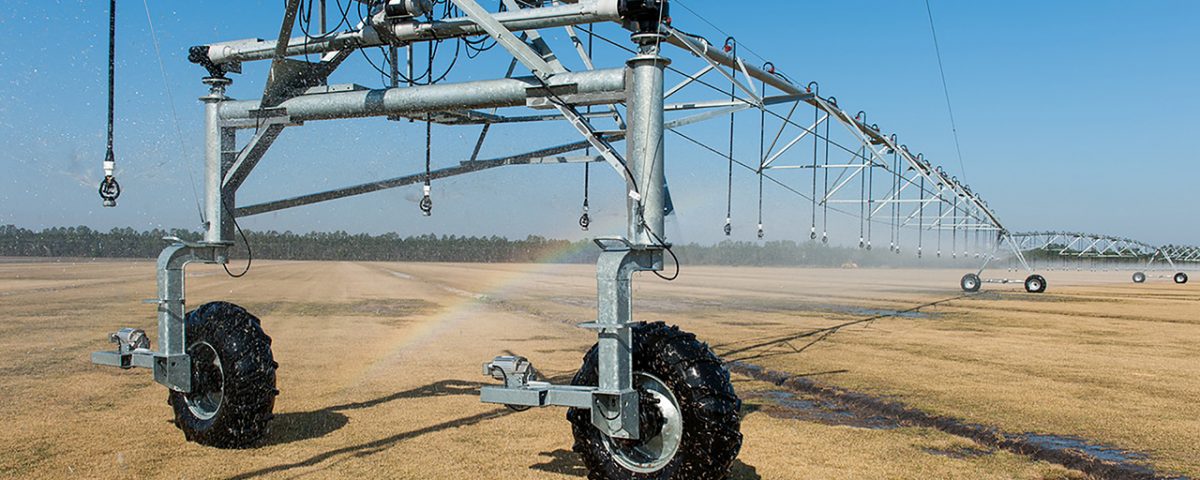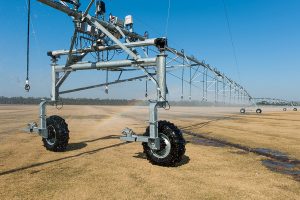Board approves $1.2 million in agricultural project funding

Pivot irrigation systems, similar to the photo above, are one of several ways to improve irrigation efficiency and conserve water.

Pivot irrigation systems, similar to the photo above, are one of several ways to improve irrigation efficiency and conserve water.
ORLANDO, Fla., Feb. 12, 2019 — Thirteen agricultural projects will share in $1.2 million from the St. Johns River Water Management District to improve water conservation and reduce the amount of nutrients flowing into area waterways. The district’s Governing Board approved the project ranking at Tuesday’s meeting.
Our cost-share program is a testament to our shared desire to protect Florida’s natural resources,” said St. Johns River Water Management District Executive Director Dr. Ann Shortelle. “I’m excited to see proactive measures being taken by the agricultural community to increase irrigation efficiency for water conservation and to reduce nutrient loading to the St. Johns River and its tributaries.”
Proposed projects are anticipated to collectively conserve 1.8< million gallons of water each day and reduce total nitrogen by 8,687 pounds per year and total phosphorus by 1,582 pounds per year. Projects receiving funding are:
- Sun Ag, Inc., Indian River County, awarded $84,358
- Banack Family Partnership, Indian River County, awarded $208,041
- Wilson Training Center, Lake County, awarded $16,931
- Liner Source, Lake County, awarded $6,850
- Alpha Fern Company, Volusia County, awarded $66,848
- Genuine Giant, LLC, Duval County, awarded $198,735
- Roy Brown, Alachua County, awarded $41,325
- Benchmark Farms, Lake County, awarded $38,546
- West Vero Farms, Indian River County, awarded $250,000
- Brown’s Organic Farm, Alachua County, awarded $3,375
- Riverfront Packing, Indian River County, awarded $242,381
- Estes Citrus I, Indian River County, awarded $42,978
- Estes Citrus II, Indian River County, awarded $34,359
The district received 17 project applications for funding assistance through the district’s Ag Cost-Share Program, which is outside the Tri-County Agricultural Area, which has its own funding program.
The Districtwide Agricultural Cost-Share program began in 2015 to assist farmers and growers with implementing projects that conserve water and result in nutrient loading reductions. For information about district cost-share programs, visit www.sjrwmd.com/localgovernments/funding.

